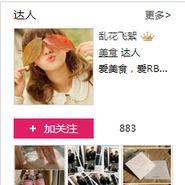- About
- Subscribe Now
- New York,
April 2, 2014

 Lancome's Rose Beauty Web site
Lancome's Rose Beauty Web site
International beauty brands are facing stauncher competition from local players in the Chinese market, according to L2's latest beauty report.
Lancôme and Estée Lauder secured the top two spots, greatly outperforming the 61 percent of brands that ranked challenged or feeble. L2 argues that digital innovations offer a "moat" for brands that want to protect gains made in the country.
"One of the most surprising findings in this study is that Chinese brands are catching up digitally, while Korean brands riding the 'Korean Wave' have not yet invested in digital," said Emma Li, lead researcher of the L2 report, New York.
"Chinese brands now average the second-highest Digital IQs after French brands, while Korean brands average the lowest after Japanese players, which have maintained a low profile in China after suffering political backlashes in recent years," she said.
L2's Digital IQ Index: Beauty China examines the digital performance of 84 global and local brands across three Beauty categories: Skin Care, Color Cosmetics and Fragrances. Brand rankings are based on the following criteria: 30 percent Web site, 30 percent social media, 20 percent digital marketing and 20 percent mobile.
Local and vocal
According to research from Nielsen, Chinese consumers shop online primarily because of lower and transparent pricing, ease and time-saving factors, easy price and product comparison capabilities, less travel and home delivery.
Combine such incentives with a beauty market that grew 13 percent in 2013 and 17 percent in 2012 and beauty brands have many opportunities to seize a greater market share.
However, as the market grows, local players have leveraged superior cultural understanding to out-sprint foreign-based brands in the chase for new sales.
Indeed, localized technology will help brands stay up with competitors. Fifty-eight percent of global brands host their Web sites outside of China, which results in slower load times, and 42 percent of ecommerce sites have received Trustworthy Certification.
Sixty-two percent of Web sites feature store locators, 45 percent feature videos and 39 percent feature user reviews, three areas that are crucial to an effective digital experience.
Beauty brands have implemented loyalty programs at a greater rate than U.S. counterparts, with 34 percent of Web sites offering an integrated loyalty program.
Currently, brands spend more of their time on social platform Sina Weibo and mobile app WeChat when reaching consumers. However, WeChat's capacity for facilitating mobile commerce has been largely neglected.
Filtering the few
Lancôme soared to the top of the ranking system with a rarely seen IQ score of 171. The French beauty brand earned its place due to a strong localized ecommerce site that includes extensive sampling and an express shopping lane, an interactive and commerce-conducive WeChat presence and other elements.
User generated content on Lancôme's Rose Beauty Web site
Estée Lauder grabbed the second place spot through its aggressive social fan accumulation, interactive WeChat presence and a forward-looking SEO strategy for local engines.
Multi-category brands fared the best, with an average IQ of 88, while fragrance-exclusive brands performed the worst, with an average IQ of 73.
France-based beauty brands outperformed other countries by a wide margin. Despite a few stragglers, brands shepherded by a conglomerate such as L'Oreal Group or Estée Lauder tended to perform better than isolated brands, indicating that best-practices are shared between brands.
"Global brands can protect hard-won gains in China through smart digital strategies, particularly in terms of ecommerce," Ms. Li said.
"Soaring online sales have spurred growth in China’s Beauty industry, but not without a cost to brands," she said. "Much of ecommerce is done through major e-tailers, where brands have no control over pricing.
"Just three global brands, L'Oreal Paris, Olay, and Estée Lauder, were among the top 10 beauty brands by sales during Single's day on Tmall. This is an opportunity for global brands. Strategically forming partnerships with e-tailers in China and operating direct-to-consumer ecommerce, accompanied with a strong local social, search and mobile strategy can lessen the impact of the gray market."
Final Take
Joe McCarthy, editorial assistant on Luxury Daily, New York
Share your thoughts. Click here